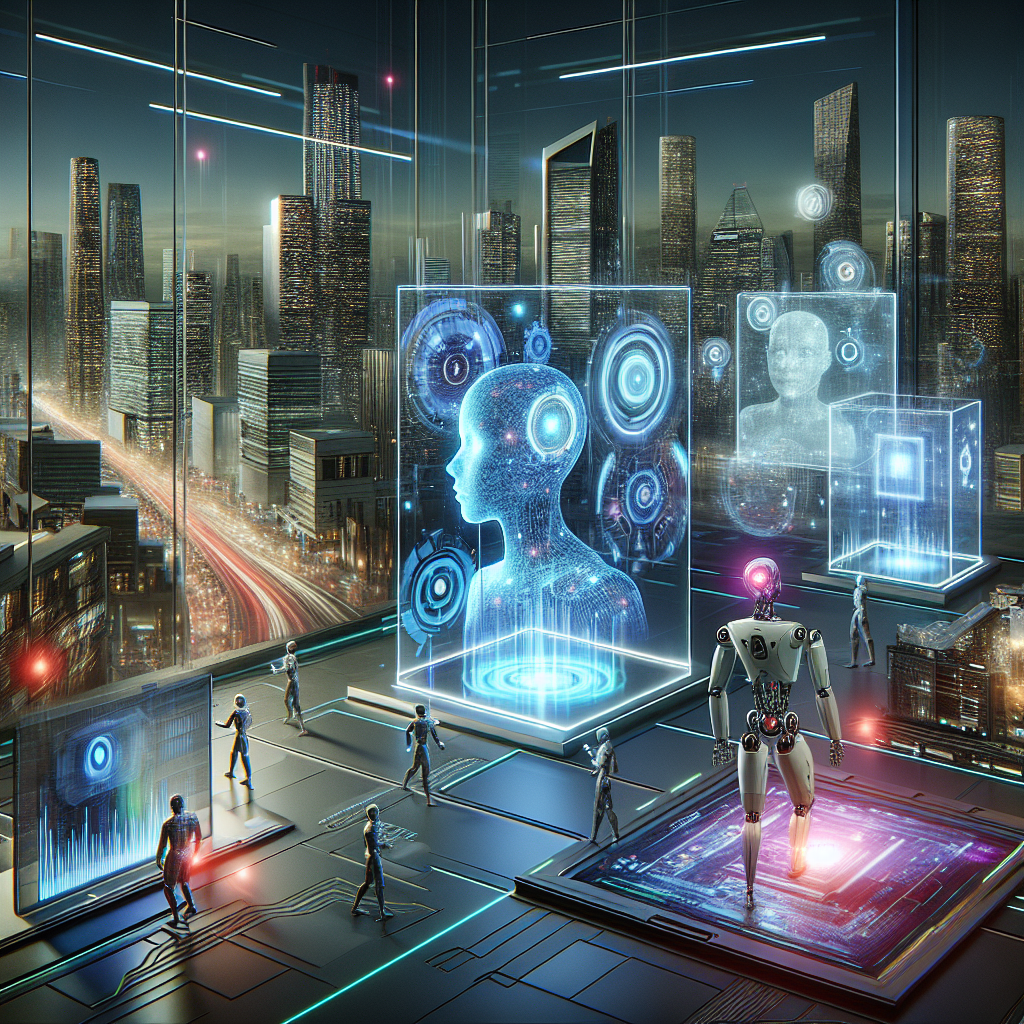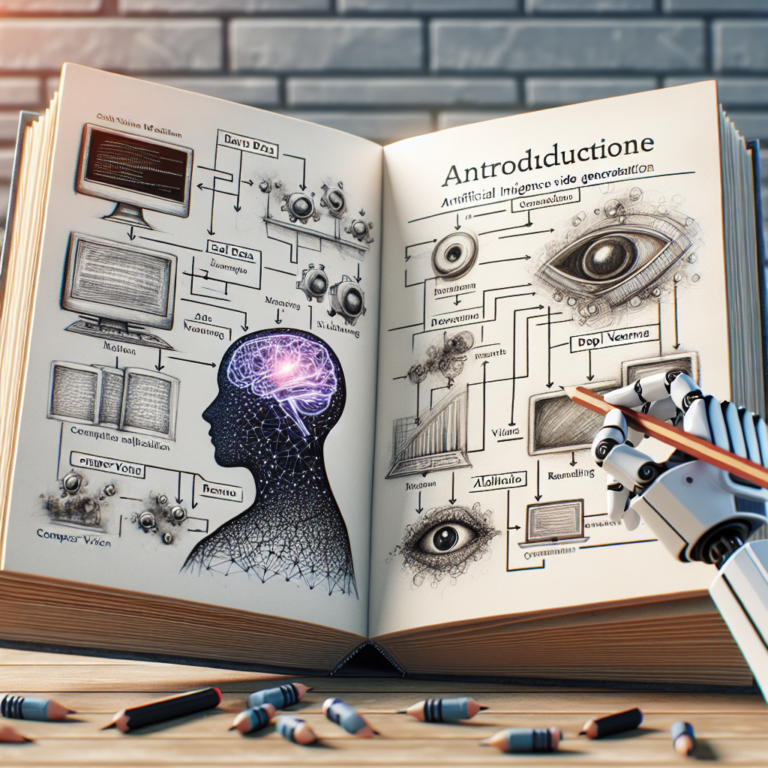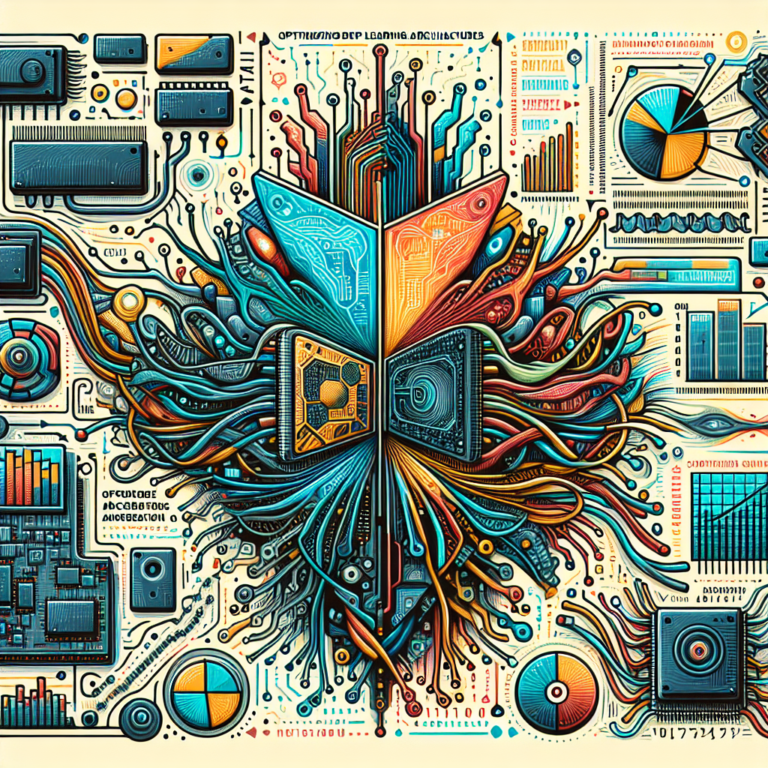The Future of AI Video Generation: How Machines Are Revolutionising Content Creation
The Impact Of AI On Video Production: Transforming Traditional Filmmaking
The advent of artificial intelligence in video production marks a significant turning point in the realm of content creation, fundamentally transforming traditional filmmaking processes. As AI technology continues to evolve, it is increasingly being integrated into various stages of video production, from pre-production to post-production, thereby revolutionizing the way filmmakers conceptualize, create, and deliver visual narratives. This transformation is not only enhancing efficiency but also expanding creative possibilities, offering filmmakers new tools to bring their visions to life.
Initially, AI’s role in video production was limited to automating mundane tasks, such as organizing footage or generating transcripts. However, recent advancements have enabled AI to take on more complex roles, such as scriptwriting, storyboarding, and even directing. By analyzing vast amounts of data, AI algorithms can identify patterns and trends, providing filmmakers with insights that can inform creative decisions. For instance, AI can analyze audience preferences and suggest plot elements or visual styles that are likely to resonate with viewers, thereby increasing the potential for a film’s success.
Moreover, AI is transforming the editing process, traditionally a time-consuming and labor-intensive task. With AI-powered editing tools, filmmakers can now automate the selection and assembly of clips, significantly reducing the time required to produce a polished final product. These tools can also enhance video quality by automatically adjusting color grading, stabilizing shaky footage, and even generating special effects. As a result, filmmakers can focus more on the creative aspects of their projects, rather than getting bogged down by technical details.
In addition to streamlining production processes, AI is also democratizing video creation by making high-quality filmmaking accessible to a broader audience. With AI-driven platforms, individuals with limited technical skills can produce professional-grade videos, leveling the playing field for aspiring filmmakers. This democratization is fostering a more diverse range of voices and stories in the film industry, enriching the cultural landscape with fresh perspectives and innovative narratives.
Furthermore, AI is opening up new avenues for storytelling by enabling the creation of interactive and immersive experiences. Through AI-generated content, filmmakers can craft narratives that adapt to viewer interactions, offering personalized experiences that engage audiences on a deeper level. This capability is particularly relevant in the realm of virtual reality and augmented reality, where AI can dynamically alter the storyline based on user input, creating a more engaging and participatory form of storytelling.
However, the integration of AI in video production is not without its challenges. Concerns about the potential loss of human creativity and the ethical implications of AI-generated content are prevalent. As AI systems become more autonomous, questions arise about authorship and the role of human intuition in the creative process. It is crucial for the industry to address these concerns by establishing guidelines and frameworks that ensure AI is used responsibly and ethically, complementing rather than replacing human creativity.
In conclusion, the impact of AI on video production is profound, offering both opportunities and challenges. As AI technology continues to advance, it is poised to further transform traditional filmmaking, pushing the boundaries of what is possible in content creation. By embracing these innovations, filmmakers can harness the power of AI to enhance their creative processes, ultimately leading to richer and more diverse storytelling. As we look to the future, the collaboration between human creativity and machine intelligence promises to redefine the landscape of video production, ushering in a new era of cinematic possibilities.
AI-Driven Personalization: Crafting Tailored Video Content For Diverse Audiences

The future of AI video generation is poised to revolutionize content creation, particularly through the lens of AI-driven personalization. As technology continues to advance, the ability of machines to craft tailored video content for diverse audiences is becoming increasingly sophisticated. This evolution is not only transforming how content is produced but also how it is consumed, offering a more personalized experience for viewers.
At the heart of this transformation is the capability of artificial intelligence to analyze vast amounts of data and extract meaningful insights. By leveraging machine learning algorithms, AI systems can identify patterns and preferences within audience data, enabling content creators to produce videos that resonate on a personal level. This level of personalization is achieved by considering factors such as viewing history, demographic information, and even real-time feedback. Consequently, the content delivered is more relevant and engaging, fostering a deeper connection between the creator and the audience.
Moreover, AI-driven personalization extends beyond merely tailoring content to individual preferences. It also encompasses the ability to adapt content dynamically based on contextual factors. For instance, AI can modify video content in real-time to suit different platforms or devices, ensuring optimal viewing experiences regardless of the medium. This adaptability is crucial in a world where audiences consume content across a myriad of channels, from smartphones to smart TVs. By seamlessly adjusting to these varying contexts, AI-generated videos maintain their impact and effectiveness.
In addition to enhancing viewer engagement, AI-driven personalization also offers significant benefits to content creators. By automating the personalization process, creators can focus more on the creative aspects of video production rather than the technicalities of audience segmentation. This shift allows for more innovative and diverse content, as creators are empowered to experiment with new ideas and formats without the constraints of traditional production methods. Furthermore, the efficiency gained through AI automation can lead to cost savings and faster turnaround times, making high-quality video content more accessible to a broader range of creators.
However, the rise of AI-driven personalization in video content creation is not without its challenges. One of the primary concerns is the ethical implications of data usage and privacy. As AI systems rely heavily on data to function effectively, ensuring that this data is collected and used responsibly is paramount. Content creators and technology developers must navigate the delicate balance between personalization and privacy, implementing robust measures to protect user information while still delivering tailored experiences.
Another challenge lies in maintaining the authenticity and creativity of AI-generated content. While AI can analyze data and generate content that aligns with audience preferences, there is a risk of homogenization, where content becomes formulaic and lacks the unique touch of human creativity. To mitigate this, it is essential for creators to collaborate with AI systems, using them as tools to enhance their creative vision rather than replace it.
In conclusion, the future of AI video generation is set to redefine content creation through AI-driven personalization. By harnessing the power of artificial intelligence, content creators can deliver tailored video experiences that resonate with diverse audiences, enhancing engagement and fostering deeper connections. While challenges such as data privacy and maintaining creativity remain, the potential benefits of AI-driven personalization are immense, promising a new era of content creation that is both innovative and inclusive. As technology continues to evolve, the collaboration between humans and machines will undoubtedly shape the future of video content, offering exciting possibilities for creators and audiences alike.
Ethical Considerations In AI Video Generation: Balancing Innovation And Responsibility
The rapid advancement of artificial intelligence has ushered in a new era of content creation, with AI video generation standing at the forefront of this technological revolution. As machines become increasingly capable of producing high-quality video content, the potential for innovation seems boundless. However, this burgeoning field also raises significant ethical considerations that must be addressed to ensure that the benefits of AI video generation are realized responsibly.
To begin with, the ability of AI to generate realistic video content presents a unique set of challenges related to authenticity and misinformation. Deepfake technology, which uses AI to create hyper-realistic videos of individuals saying or doing things they never actually did, exemplifies the potential for misuse. This technology can be employed to spread false information, manipulate public opinion, or damage reputations, thereby posing a threat to the integrity of information. Consequently, it is imperative for developers and policymakers to establish guidelines and regulations that mitigate these risks while still allowing for the creative and beneficial uses of AI video generation.
Moreover, the ethical implications of AI video generation extend to issues of privacy and consent. As AI systems become more adept at creating videos that feature real people, often without their knowledge or permission, questions arise about the rights of individuals to control their likenesses. This concern is particularly pertinent in an age where personal data is increasingly commodified. Therefore, it is crucial to develop frameworks that protect individuals’ privacy and ensure that consent is obtained before their images are used in AI-generated content.
In addition to privacy concerns, the rise of AI video generation also prompts a reevaluation of intellectual property rights. Traditional notions of authorship and ownership are challenged when machines, rather than humans, are the creators of content. This raises questions about who holds the rights to AI-generated videos and how these rights should be managed. As the line between human and machine creativity blurs, it becomes essential to redefine intellectual property laws to accommodate the unique nature of AI-generated works.
Furthermore, the integration of AI in video production has significant implications for the workforce. While AI has the potential to enhance productivity and creativity, it also poses a threat to jobs traditionally held by human creators. Video editors, animators, and other professionals may find their roles diminished or transformed as AI systems become more capable. To address this, it is important to consider strategies for workforce adaptation, such as reskilling and upskilling programs, to ensure that human talent continues to play a vital role in the creative process.
Despite these challenges, the potential benefits of AI video generation are substantial. From democratizing content creation by lowering barriers to entry, to enabling new forms of storytelling and artistic expression, AI has the power to transform the media landscape in profound ways. However, realizing these benefits requires a careful balancing act between fostering innovation and upholding ethical standards.
In conclusion, as AI video generation continues to evolve, it is essential to navigate the ethical landscape with foresight and responsibility. By addressing issues of authenticity, privacy, intellectual property, and workforce impact, society can harness the transformative power of AI while safeguarding the values that underpin responsible innovation. Through collaboration between technologists, policymakers, and ethicists, the future of AI video generation can be shaped in a way that benefits all stakeholders, ensuring that this powerful technology is used for the greater good.


